Pediatric Hematology and Oncology Fellowship

Message from the program leadership
Doernbecher Children’s Hospital at Oregon Health & Science University offers one of the finest Pediatric Hematology/Oncology (PHO) fellowship training programs in the nation, and one of only two in the Pacific Northwest. Designed to prepare board eligible/certified pediatricians or med-peds trained M.D.s, M.D./Ph.D.s, or D.O.s for academic or clinical careers as future leaders in this subspecialty, we are an ACGME-accredited comprehensive training program.
Our program has a strong track record of successfully training fellows; launching them to have careers as R01 funded physician-scientists, clinical leaders involved in clinical trial design and development, and clinician educators to name a few paths our fellows have chosen after fellowship. Our comprehensive training program provides an excellent academic curriculum as evident by our superior pass rate on the national boards. The clinical training exposes fellows to all domains of our subspecialty including general oncology, hematology, bone marrow transplantation, palliative care, and neuro-oncology. Two to three fellows are recruited annually through the National Resident Matching Program (NRMP) for the three-year fellowship. As most fellowships in the country, ours is also heavily clinically focused in the first year and, in the latter two years, the clinical responsibility of the fellows is dramatically reduced and academically focused.
We are proud to be in Portland, Oregon, considered one of the most beautiful cities in the country. Nested atop the forest of Marquam hill nature park, our campus is backdropped by Mount Hood and is an easy drive to the incredible Oregon coast, the mountains of the Cascade Range, or the high desert of Central Oregon.
Marie Martinelli, M.D.
Director, Pediatric Hematology/Oncology Fellowship Program
Patrick DeMartino, M.D., M.P.H.
Associate Director, Pediatric Hematology/Oncology Fellowship Program
Sam Fletcher-Taylor
Coordinator, Pediatric Hematology/Oncology Fellowship Program
Program aims
- Provide a comprehensive curriculum in Pediatric Hematology/Oncology to enable fellows to care for patients with cancer and blood disorders in inpatient and outpatient settings.
- Train PHO fellows to conduct scholarly activity in any area of their choosing including: basic science, translational, clinical, education, QI, healthcare resources, or advocacy.
- Train PHO fellows to understand the importance of self-care and understand how to implement it into their daily practice.
- Facilitate PHO fellows in discovering their passion/values and to choose an appropriate career track that will lead to life-long fulfillment.
Benefits
Please see the Department of Pediatrics fellowship page for departmental benefits available to all pediatric fellows, and the OHSU GME page for Employment and Benefits information, including salary, transportation and insurance.
Curriculum
Clinical training
First-Year Fellow Clinical Experience
Inpatient Service
Pediatric Hematology/Oncology and bone marrow transplant patients are admitted to Doernbecher Children’s Hospital state-of-the-art 21-bed unit, known as 10-South. The hematology/oncology service is composed of an attending pediatric hematologist/oncologist, a first-year fellow, two nurse practitioners, a pediatric resident, and often times third- or fourth-year medical students. First-year fellows spend approximately half of the first year of fellowship on the inpatient unit in increments of three-four week rotations where they are responsible for running rounds as the inpatient team leader. Every night, either an upper level resident, nocturnist, or moonlighting faculty or fellow covers the inpatient unit. On-call fellows may be required to return to the hospital at night for emergent patient situations or assist in managing a new diagnosis; otherwise they take call from home.
The goals for first-year fellows on the inpatient unit are to learn how to:
- Diagnose and work-up new or relapsed patient with oncologic malignancies and hematologic disorders
- Manage bone marrow transplant patients and their complications
- Risk stratify and treat newly diagnosed oncology patients
- Identify and manage oncologic emergencies
- Consent and enroll patients in clinical trials
- Lead important diagnostic discussions, including consent-to-treat discussions or end-of-life discussions
- Gain proficiency in performing common procedures such as bone marrow aspirations/biopsies and lumbar puncture
- Perform oncology consults on inpatients on other services
- Manage primary patients requiring ICU-level care and attend multidisciplinary PICU rounds
- Provide culturally competent care for each family including how to appropriately integrate interpreters in the visit
- Teach medical students and residents by bedside teaching as well as didactics
Preparation for general pediatrics board examination
For fellows needing to sit for the American Board of Pediatrics (ABP) certifying examination in October, we recognize the transition from residency to fellowship is hectic in getting to know a new hospital, city, and people, and may not leave much time for studying. All first-year fellows needing to sit for the general pediatric board examination will receive at least two weeks of protected board study preparation time built into their schedule where they are relieved of all clinical responsibilities.
Continuity clinic
Starting the first year of fellowship, fellows are assigned a half-day of continuity clinic where they are relieved of all other clinical responsibility. A faculty member within the division is paired with each fellow in clinic and serves as that fellow’s clinical mentor throughout all three years of fellowship, providing direct clinical mentorship and training for fellows learning how to manage their panel of patients. Our patients come to view their fellow as their primary hematologist/oncologist. Fellows are responsible for treatment planning including ensuring the accuracy of chemotherapy, holding important discussions, performing procedures, communicating with other clinical services, and planning off-therapy surveillance and follow-up. Given the breadth of diseases within pediatric hematology/oncology, fellows are encouraged to fill their continuity panel with a variety of patients of differing diseases to ensure a comprehensive clinical experience. Fellows may also pick up brain tumor, bone marrow transplant and hematology patients.
Hematology rotation and consults
The first year of fellowship includes a broad exposure to non-malignant hematology disorders. Fellows are the primary point of contact for inpatient hematology consults and, in close collaboration with referring teams and hematology attendings, determine work-up and interventions. Fellows also see an array of hematology diagnoses during hematology outpatient rotations, including sickle cell disease, cytopenias, thrombosis, and get to spend time in our multidisciplinary vascular anomalies clinic and in the blood bank. Our hematologists hold appointments within OHSU’s Hemophilia Treatment Center (HTC) and, therefore, fellows rotate through the HTC’s clinics, including the comprehensive hemophilia clinic, pediatric stroke clinic, and the “Spots Dots and Clots” clinic for menstruating individuals with hemostatic conditions. Adult and pediatric hematology hold a combined weekly didactic conference over pizza on Fridays, and adult and pediatric stroke teams hold quarterly stroke case conference.
Pediatric neuro-oncology
First-year fellows will spend time in the outpatient multidisciplinary comprehensive neuro-oncology clinic. In the same clinical visit, these complicated brain tumor patients are seen by their primary neuro-oncologist, in addition to any other subspecialist in the same visit, such as a neuro-surgeon, neurologist, endocrinologist, neuro-psychologist, social worker, and education specialist. Fellows gain important knowledge in the management of patients with brain tumors, which, after patients with leukemia, comprise the second largest segment of our oncology patient population, in addition to gaining an appreciation for comprehensive multidisciplinary clinical care. Fellows also are expected to see any newly diagnosed brain tumor patients while on this rotation and attend the neuro-oncology weekly tumor board.
Survivorship Clinic
With treatment advances in recent decades, more and more of our patient population are becoming long-term survivors. As such, it is important for fellows to gain an appreciation and recognize the long-term side effects of chemotherapy, radiation, and stem-cell transplantation. First-year fellows will spend time in Survivorship Clinic, under the mentorship of Dr. Lindemulder.
Bone Marrow Transplant and Cellular Therapies Clinic
First-year fellows will spend one-two months rotating in the bone marrow transplant and cellular therapies clinic. During this time, fellows will learn the outpatient management for these patients. Fellows will also spend time in new patient consultations, bone marrow transplant rounds where upcoming transplants and cellular therapies are discussed, as well as time in the stem cell lab observing a stem cell collection. Fellows will also spend time with the bone marrow transplant coordinator to learn about HLA typing and choosing the most appropriate donor. All fellows have the opportunity and are encouraged to participate in a bone marrow harvest. Fellows will also learn and manage patients receiving cellular therapies such as CAR-T therapy.
First-year fellows are not allowed to moonlight for paid night shift or weekend coverage, but may do so beginning second year of fellowship.
Second and third years
While the first year of fellowship is focused heavily on clinical training, the following second and third years are almost entirely devoted to scholarly activity and research.
Scholarship and mentorship
Fellows meet with the Program Directors and faculty to delineate research interests within the first year of fellowship. Significant effort is dedicated to this process to maximize opportunity for a successful investigative career. This is followed by the choice of a research mentor and project, with scholarly activities to commence by the second year of fellowship, when fellows will have 80% protected time toward completing their research project. As part of their career development, fellows may choose to pursue an advanced degree.
Fellows may choose from several areas for their research project including but not limited to:
- Clinical research
- Basic science
- Translational
- Advocacy
- Education
- Health policy
Fellows have access to mentors from across OHSU, the Knight Cancer Institute, and the Portland VA.
Scholarly Oversight Committee
Each fellow provides regularly scheduled progress meetings to their respective scholarly oversight committee (SOC). The SOC is composed of the primary research mentor, the program director or the associate program director, and three experts in the field with one of these experts being outside of the department. Fellows may select the panel of experts and are often assisted by the primary research mentor. It is the goal of the SOC to provide useful guidance, critique, and direction to fellow research.
Graduate degrees
Fellows will be mentored in grant writing and participate in the two-year NIH-funded Human Investigations Program conducted at OHSU. They may continue this program to receive a Master of Clinical Research degree, or they may decide to receive a different master-level degree such as a Master of Public Health, Master of Business Administration or a Master of Education (via an online program at various institutions across the country).
Global health
Fellows interested in global health and international medicine have the opportunity during their third year of fellowship to travel with an OHSU Pediatric Hematology/Oncology faculty member to work at a site in Tanzania. During this two-three week international rotation, fellows learn and gain an appreciation for how children with malignant conditions are managed in a setting with different resource capabilities than in the US. Fellows work side by side with local staff in caring for children and developing therapy plans.
Didactics
The education curriculum for Pediatric Hematology/Oncology trainees includes both dedicated lectures for our fellows as well as regularly recurring working meetings, such as tumor boards, within the division. Our education program provides our trainees with both up-to-date and evidence-based standards of clinical care for pediatric hematology/oncology as well as more academic focused content, as evident by our higher than national average pass rate on the American Board of Pediatrics Hematology/Oncology certifying examination.
- Pediatric Hematology/Oncology Fellow Lecture Series (one-two times per week) – Lectures on topics pertinent to clinical standards of care and content encompassing the American Board of Pediatrics content specifications for Pediatric Hematology/Oncology.
- Pediatric Hematology/Oncology Case Conference - fellows have the opportunity to present interesting or challenging cases to the division. Discussion focuses on evidence-based clinical management and recommendations for active cases. These meetings often become quite dynamic among the faculty and are an excellent learning opportunity for fellows to engage in various management approaches and styles!
- Pediatric Hematology/Oncology Grand Rounds (Wednesday mornings) - This series features an invited guest lecturer from an outside institution, a local scientist from OHSU presenting on research pertinent to hematology or oncology, or a division faculty member or current fellow. Fellows are expected to provide two grand round lectures each academic year, which can be a clinical case-based lecture or a presentation of their academic research.
- Oncology Tumor Board (Wednesday afternoons) – The first-year inpatient fellow presents the new diagnosis or recurrent cases for discussion.
- Pediatric Neuro-Oncology Tumor Board (Thursday mornings) – Fellows who pick up new brain tumor patients or consult on new cases are encouraged to present the case at this multidisciplinary pediatric brain tumor board. This conference is primarily attended by faculty and staff from neuroradiology, neuropathology, neurosurgery, and neuro-oncology. This is an active tumor board and discussions here provide excellent learning on the management of pediatric neuro-oncology.
- Friday morning inpatient sign-out (Fridays) – Led by the current inpatient first-year fellow to review all inpatient active issues as the attending on service switches. Active hematology consults are also discussed by either the outpatient first-year hematology fellow or hematologist on service.
- Joint Pediatric and Adult Hemostasis and Thrombosis Conference (Friday noon hour) – This conference alternates between interesting active case lectures, educational conferences, and guest speaker lectures.
- Journal Club (monthly) - A fellow identifies a recently published peer-reviewed journal article and, with a faculty mentor, presents the article to the division for discussion and critique. Fellows are expected to lead a minimum of one journal club discussion per year.
Fellow Support Group
Becoming a pediatric hematologist/oncologist is a rigorous process that requires dedicated clinical training often under high stress situations. The program recognizes stress is inherent to our subspecialty and wants to ensure that all fellows feel supported.
The Fellow Support Group (FSG) is a cherished part of our fellowship program. Led by a pediatric oncology social worker in our department, this fellows-only forum meets to talk through challenges encountered during training. Dinner is provided and fellows meet at restaurants around Portland.
Topics covered include:
- Coping with an unexpected relapse
- Managing end-of-life discussions
- Dealing with a challenging patient or family interaction
- Work/life balance
- Helping significant others cope with an oncologist partner
- Time management
- Self-compassion
OHSU Resident Faculty Wellness Program
OHSU is dedicated to the wellness of the trainees and faculty to help you stay healthy - emotionally, mentally, and physically. Trainees are able to receive confidential mental health counselling through the Resident Faculty Wellness Program. Experienced psychologists and psychiatrists provide professional services in a private location with no EPIC documentation.
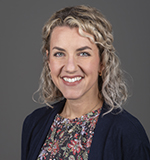
Morgan Day
Medical School: Lake Erie College of Osteopathic Medicine, PA
Pediatric Residency: University of New Mexico
Research: Dr. Day is exploring the immunosuppression seen in the bone marrow microenvironment of patients with AML. Her work focuses on the aryl hydrocarbon receptor pathway and the suppression of innate and adaptive immunity.
Research Mentor: Dr. Evan Lind
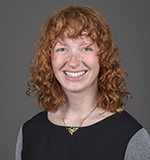
Zina Stavitsky
Medical School: University of Nevada, Reno School of Medicine
Pediatric Residency: OHSU
Research: Dr. Stavitsky is utilizing live cell imaging techniques to study extrachromosomal DNA in neuroblastoma and its role in tumorigenesis.
Research Mentor: Dr. Stephen Roberts and Dr. Alex Davies

Roohie Poonia
Medical School: Chicago Medical School at Rosalind Franklin University of Medicine & Science, 2019
Pediatric Residency: University of Chicago Comer Children’s Hospital, 2022
Research: Dr. Poonia is working on a prospective mixed methods observational study exploring barriers to oral chemotherapy adherence for pediatric acute lymphoblastic leukemia maintenance chemotherapy. She will specifically focus on barriers to adherence experienced by patients experiencing poverty, as patients in this demographic experience higher rates of relapse.
Research mentor: Dr. Jessica Currier, Ph.D.
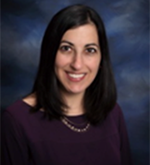
Lori Morgan
Medical School: Indiana University School of Medicine, 2019
Pediatric Residency: Oregon Health and Science University, 2022
Research: Dr. Morgan is researching aspects of administration and therapeutic drug monitoring of Asparaginase therapy. She is exploring the differences between drug formulations to support evidence-based practice both at OHSU and nationally.
Research Mentor: Dr. Linda Stork
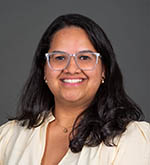
Pawani Kher
Medical School: Punjab Institute of Medical Sciences
Pediatric Residency: University of Missouri-Columbia, Columbia, MO, Pediatrics
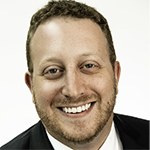
Nick Moore
Medical School: Perelman School of Medicine at the University of Pennsylvania
Pediatric Residency: University of Vermont Medical Center, Burlington, VT, Pediatrics
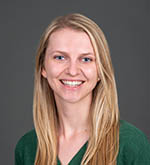
Kaycee Moshofsky
Medical School: Oregon Health & Science University School of Medicine
Pediatric Residency: UT Southwestern, Dallas, TX, Pediatrics
Fellowship: UT Southwestern, Dallas, TX, Hospice and Palliative Medicine (Multidisciplinary)
Alumni testimonials
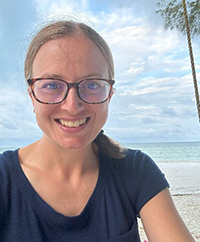
Amanda Johnson, 2022 graduate
"From my first day to my last day as a Pediatric Hematology/Oncology fellow at Doernbecher Children’s/OHSU, I was supported and encouraged by all the faculty and staff to be the best physician I could be. I was continually encouraged to be a compassionate provider who understood and knew the treatment standards, but also encouraged to research, question, and push the bounds of my current knowledge when the optimal treatment was unclear.
The program was extremely flexible with my scholarly time, allowing me to have an external mentor for clinical research focusing on patient and caregiver quality of life in addition to pursuing my Masters in Public Health at OHSU-Portland State School of Public Health. I am forever grateful for the impact my three years of training at Doernbecher Children’s/OHSU had on me as both an individual and a clinician."
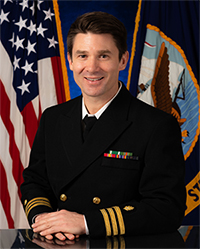
Shelton Viola, 2015 graduate
“I had an incredible experience as a Heme-Onc fellow at Doernbecher. Every single member of the faculty performed their clinical teaching duties with vigor and excitement. This enthusiasm carried forward for me to create a strong clinical foundation for patient care after my training. In addition, there are so many great research opportunities at OHSU, and I was encouraged and supported by the faculty to take full advantage of those that I found personally intriguing. This support allowed me to be very productive in my research years, which has opened doors for continuing the momentum after fellowship through involvement in cooperative clinical trials and in my own lab-based projects. Perhaps most importantly, being a fellow at Doernbecher has given me a life-long network of colleagues, mentors, and friends with whom I feel wholly comfortable seeking advice for the remainder of my career and beyond.”
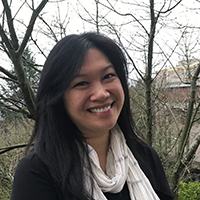
Melinda Wu, 2014 graduate
“I loved my experience as a Pediatric Heme/Onc fellow at Doernbecher. The supportive faculty and community at OHSU created a wonderful and stimulating environment that allowed me to stretch myself intellectually and also delve deeper into my personal areas of interest. The education was both comprehensive and collaborative. It provided me with both clinical skills to treat very complicated hematology and oncology cases, and research skills that allowed me to pursue a physician-scientist career. I feel fortunate to have been a part of this program and grateful for the life-long colleagues and friends that I’ve made through this training.”
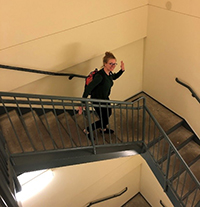
Kristina Haley, 2013 graduate
“All along, I wanted to be a hematologist. But, I also wanted to be sure that I could practice any aspect of pediatric hematology/oncology – just in case. When I was looking for a fellowship program, I sought out a place that would train me well and give me opportunities to develop my passion for hematology. In addition, I was really hoping to get back to the Pacific Northwest with access to waterways and mountains! I was so happy when I matched at Oregon Health & Science University. In my three years as a pediatric hematology/oncology fellow, I received a state-of-the-art education in diagnosis and management of the most common as well as the most rare pediatric hematology/oncology conditions, in exercising collaboration and communication skills with multidisciplinary teams, in thinking critically about patient information as well as scientific articles, in creating relationships with colleagues and families, in asking thoughtful and specific questions, and in determining how best to get a patient with a mediastinal mass from the east side of Oregon to Portland during a snowstorm. I was able to carry out research in a laboratory in the Department of Biomedical Engineering, testing my ability to learn new skills and generate new ideas. And I was given the opportunity, in addition to learning everything I needed for becoming a pediatric hematologist/oncologist, to hone my skills as a pediatric hematologist. New consults were funneled to my clinic, and I gathered important clinical experience that informs my current practice on a day-to-day basis. And all of this was done while surrounded by bright, compassionate, creative, and inquisitive colleagues.”
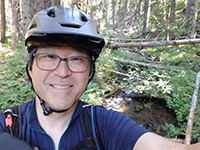
Bill Chang, 2006 graduate
“I came to Portland in 1993 for the combined MD/PhD program. Since then I never left. I believe the training at OHSU was by far the best that I could have received. My era of scientific training focused on intracellular signaling and blocking key pathways in malignancies. My clinical training in this program allowed me to experience almost every disease that may present to a pediatric hematology and oncology program and allowed me to focus these paths to my current position as the Director of the Leukemia and Lymphoma program at Doernbecher. At different points in my career, opportunities arose to seek further training and positions outside of OHSU, but at each fork, all paths continued to lead me here. Of course, opportunities to seek adventure in nature in the NW goes without saying.”
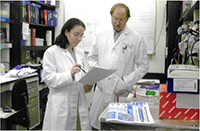
Veronica Flood, 2005 graduate
“My fellowship in pediatric hematology/oncology at Doernbecher was the start of my career as a hematologist. I had the opportunity to work in a coagulation lab with David Farrell, and learn clinical hematology from the wonderful staff physicians (special recognition to Greg Thomas, Larry Wolff, and Lynn Boshkov for their wonderful teaching). Although my research and clinical focus is now on von Willebrand disease in a city far from Portland, I will always appreciate my fellowship training.”
-
- Bill Hoon Chang, M.D., Ph.D.
- Director, Leukemia and Lymphoma Program
-
Appointments and titles
- Professor of Pediatrics, Division of Hematology and Oncology, School of Medicine
- Marsha and Richard Wright, Sr. Family Professor in Pediatric Oncology
-
Areas of interest
- Novel targeted therapies
- Immunotherapies and Cellular Therapies
- Hematopoietic Stem Cell Transplantation
-
-
Appointments and titles
- Assistant Professor of Pediatrics, Division of Hematology and Oncology, School of Medicine
- Assistant Program Director, Pediatric Hematology/Oncology Fellowship
-
-
- Kristina M. Haley, D.O., M.C.R.
- Director, OHSU Hemostasis and Thrombosis Center
-
Appointments and titles
- Associate Professor of Pediatrics, Division of Hematology and Oncology, School of Medicine
-
Areas of interest
- Bleeding disorders such as Hemophilia, von Willebrand Disease, and platelet function disorders
- Immune Thrombocytopenia
- Venous Thromboembolism
- Heavy Menstrual Bleeding evaluation and management
-
-
Appointments and titles
- Assistant Professor of Pediatrics, Division of Hematology and Oncology, School of Medicine
- Program Director, Pediatric Hematology/Oncology Fellowship
-
Areas of interest
- Thrombosis
- Platelet disorders
- Medical education
-
-
- Susan J. Lindemulder, M.D., M.C.R.
- Medical Director of Pediatric Hematology and Oncology
-
Appointments and titles
- Associate Professor of Pediatrics, Division of Hematology and Oncology, School of Medicine
-
-
Appointments and titles
- Assistant Professor of Pediatrics, Division of Hematology and Oncology, School of Medicine
-
-
- Eneida R. Nemecek, M.D., M.S., M.B.A.
- Nancy Jaggar Blount Endowed Professor of Pediatrics & Medical Oncology; Director, Pediatric Bone Marrow Transplant Program, Doernbecher Children’s Hospital; Associate Director of Clinical Research, OHSU Knight Cancer Institute
-
Appointments and titles
- Professor of Medicine, School of Medicine
- Professor of Pediatrics, School of Medicine
- Director, Pediatric Bone Marrow Transplant Program, Doernbecher Children’s Hospital
- Associate Director of Clinical Research, OHSU Knight Cancer Institute, School of Medicine
- Nancy Jaggar Blount Endowed Professor of Pediatric Oncology
-
Areas of interest
- Graft vs. host disease
- Diversity and Healthcare Disparities
- Cellular therapies
-
- Stephen Roberts, M.D. (he/him)
- Robert C. Neerhout Chair of Pediatric Oncology, Division Head, Pediatric Hematology and Oncology
-
Appointments and titles
- Professor of Pediatrics, School of Medicine
- Robert C. Neerhout Chair of Pediatric Oncology
- Associate Director of Pediatric Oncology, OHSU Knight Cancer Institute, School of Medicine
-
-
Appointments and titles
- Assistant Professor of Pediatrics, Division of Hematology and Oncology, School of Medicine
-
-
-
Appointments and titles
- Professor of Pediatrics, Division of Hematology and Oncology, School of Medicine
- Associate Director, Cancer Research Training, Knight Cancer Institute
- Block Co-Director, Blood and Host Defense
-
Areas of interest
- Pediatric Bone Marrow Transplant
- Bone Marrow Failure
- Immunodeficiency
- Innovations in Education
-
-
-
Appointments and titles
- Professor of Pediatrics, Division of Hematology and Oncology, School of Medicine
- Chair, Membership Committee, Children’s Oncology Group
-
-
-
Appointments and titles
- Assistant Professor of Pediatrics, Division of Hematology and Oncology, School of Medicine
- Director, Pediatric Solid Tumor Program
- Director, Inpatient Medical Student Rotation in Pediatric Hematology and Oncology
-
Areas of interest
- Pediatric sarcoma
- Clinical research
- Medical student education
-
-
-
Appointments and titles
- Professor of Pediatrics, School of Medicine
- Director of Pediatric Hematology, Pediatrics, Division of Hematology and Oncology, School of Medicine
- Associate Medical Director of Transfusion Services, Pediatrics, Division of Hematology and Oncology, School of Medicine
-
Areas of interest
- Hemoglobinopathies, including sickle cell disease and thalassemia
- Pediatric transfusion Medicine/blood banking
- Bleeding and clotting disorders in children
- Unconscious bias and health disparities
-
-
-
Appointments and titles
- Assistant Professor of Pediatrics, Division of Hematology and Oncology, School of Medicine
-
Application process
We match two to three fellows each year for training in pediatric hematology-oncology. Prospective fellows are encouraged to apply in the beginning of their third year of pediatric residency. Applications are accepted through ERAS, and fellows match through the NRMP Pediatric Specialties Match.
The following criteria must be met for acceptance into the training program:
- Successful completion of an ACGME-accredited pediatric residency program
- A commitment to pursue a career in academic pediatric hematology-oncology
- Excellence in the clinical care of children
- Proven research ability or the strong potential for success in clinical or laboratory research
- An applicant must be legally able to work in the U.S., or eligible to obtain work authorization
Acceptance is granted on the basis of the applicant's potential to become a successful pediatric hematologist/ oncologist.
Oregon Health and Science University values a diverse and culturally competent workforce. We are proud of our commitment to being an equal opportunity, affirmative action organization that does not discriminate against applicants on the basis of any protected class status, including disability status and protected veteran status. Individuals with diverse backgrounds and those who promote diversity and a culture of inclusion are encouraged to apply. To request reasonable accommodation contact the Office of Civil Rights Investigations and Compliance at 503-494-5148 or ocic@ohsu.edu.
How to apply
Please submit the following materials through the Electronic Residency Application Service (ERAS):
- MyERAS application
- Personal statement (one page)
- Medical school transcript
- Medical Student Performance Evaluation (MSPE) from medical school
- Two letters of recommendation
- Resident Program Director's letter verifying your training
- United States Medical Licensing Exam (USMLE) scores
Please also see the OHSU GME information on Applying to OHSU Residencies and Fellowships.
Interview day
All interviews for the 2025 match, including for local applicants, will be conducted in-person over approximately a day. During this time, prospective applicants will have the opportunity to meet one-on-one with faculty within the division and meet our current fellows casually, including a tour of our hospital campus and dinner.
We recognize in-person interviews create unique challenges during interview season, so we are committed to easing the financial burden associated with traveling to Portland, Oregon to interview with our program. Our program provides airfare, lodging, transportation, and meals for all invited applicants. We hope to get to know all our prospective fellow applicants, showcase our stellar program, and Portland, Oregon.
Applicants with a specific area of interest are encouraged to let us know in advance so that we may coordinate clinical or research faculty to interview you that align with your area of interest.
Contact us
Marie Martinelli, M.D.
Director, Pediatric Hematology/ Oncology Fellowship Program
503-494-0831
marmarie@ohsu.edu
Pat DeMartino, M.D., M.P.H.
Associate Director, Pediatric Hematology/ Oncology Fellowship Program
503-494-0831
demartip@ohsu.edu
Sam Fletcher-Taylor
Fellowship Coordinator
503-494-0831
taylsam@ohsu.edu
